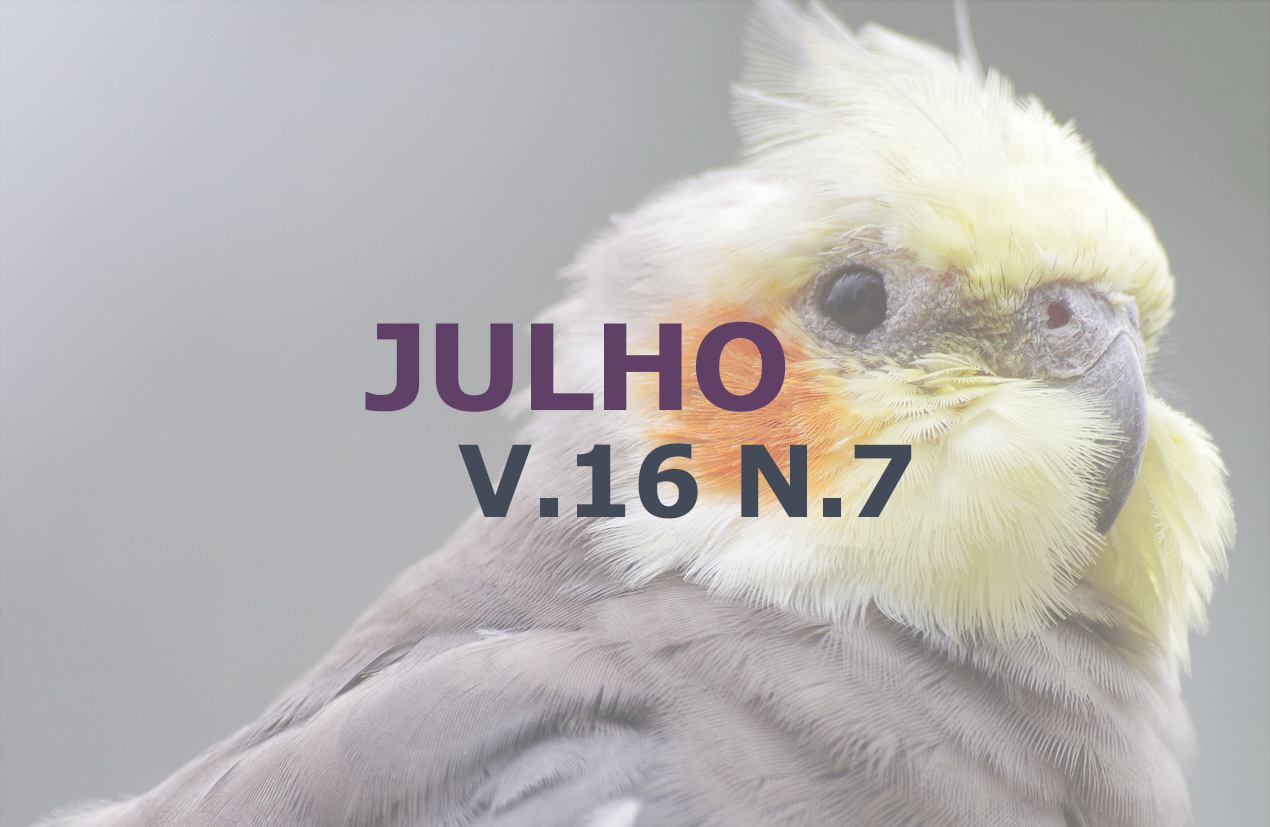Evaluation of hibiscus (hibiscus syriacus) in diets for laying Japanese quails
DOI:
https://doi.org/10.31533/pubvet.v16n07a1153.1-10Keywords:
Antioxidant, poultry farming, diuresis, nutrition, pigmentAbstract
The objective of this study was to evaluate the productive performance, quality and shelf life of Japanese quail eggs, analyzing the inclusion of different levels of hibiscus and the use of industrial pigment. A total of 192 laying Japanese quails were utilized, which were distributed in a completely randomized design (CRD), through four treatments, one positive control treatment (from the addition of industrial pigment) and three levels of inclusion of hibiscus (0%; 0.3% and 0.6%) in the sorghum-based diet. Six replications were performed, utilizing eight individuals per experimental unit. The eggs originated from the performance experiment were identified, individually weighed, and organized in CRD, in a 4 x 5 factorial scheme, using the four treatments of the performance experiment and five storage periods (7, 14, 21, 28 and 35 days). Per treatment, six replications were performed, containing two eggs. No effect was observed for the parameters of feed intake individual/day, egg weight, egg mass/individual/day, feed conversion per egg mass, laying rate/bird housed, eggs/individual/day, specific gravity, shell weight, yolk weight, albumen weight, shell percentage, yolk percentage, albumen percentage, percentage of marketable eggs and dry matter in the excreta. The yolk coloration was less intense when compared to the control treatment, in the eggs of quail fed with 0, 0.3 and 0.6% hibiscus. The antioxidant properties of hibiscus did not affect the maintenance of the quality of stored eggs. It was concluded that the inclusion of hibiscus in the diet of Japanese quails did not change the production parameters, yolk color and egg shelf life.
Downloads
Published
Issue
Section
License
Copyright (c) 2022 Ícaro Pimentel de Lima, Renata de Souza Reis, Alexandre Oliveira Teixeira, Leonardo Marmo Moreira, Juliana Pereira Lyon, Fernanda Larissa Cesar Santos, Hebiene Laiane da Silva Lobo, Ângela Gonçalves Santos, Carlos Magno da Rocha Junior

This work is licensed under a Creative Commons Attribution 4.0 International License.
Você tem o direito de:
Compartilhar — copiar e redistribuir o material em qualquer suporte ou formato
Adaptar — remixar, transformar, e criar a partir do material para qualquer fim, mesmo que comercial.
O licenciante não pode revogar estes direitos desde que você respeite os termos da licença. De acordo com os termos seguintes:
Atribuição
— Você deve dar o crédito apropriado, prover um link para a licença e indicar se mudanças foram feitas. Você deve fazê-lo em qualquer circunstância razoável, mas de nenhuma maneira que sugira que o licenciante apoia você ou o seu uso. Sem restrições adicionais
— Você não pode aplicar termos jurídicos ou medidas de caráter tecnológico que restrinjam legalmente outros de fazerem algo que a licença permita.





